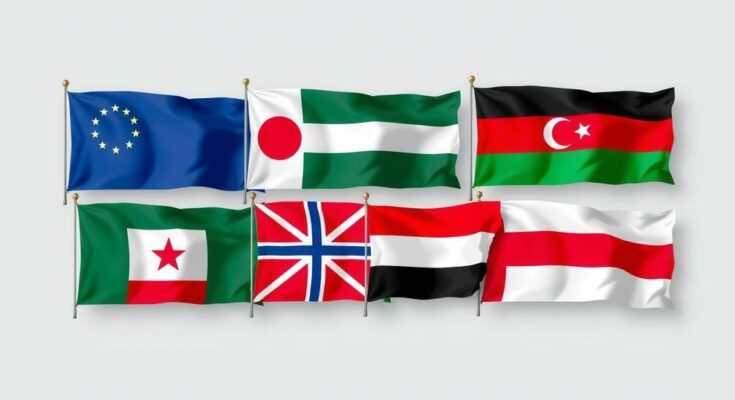Belarus, Kazakhstan, Kyrgyzstan, Russia, Tajikistan, and Uzbekistan jointly condemned the glorification of Nazis at the UN Human Rights Council. They reaffirmed the criminality of Nazi actions as established by the Nuremberg Tribunal and labeled attempts to equate the responsibilities of the Soviet Union with Nazi Germany as immoral. The statement calls for the preservation of historical truth and the fight against ideologies of hatred.
A coalition comprising Belarus, Kazakhstan, Kyrgyzstan, Russia, Tajikistan, and Uzbekistan has condemned efforts to glorify Nazis during the 58th session of the UN Human Rights Council in Geneva. This condemnation coincides with the commemoration of the 80th anniversary of the conclusion of World War II, which remains the deadliest conflict in history.
The representatives, led by Evgeny Ustinov of the Russian delegation, stated, “We consider any attempt to glorify Nazis and their accomplices absolutely unacceptable.” They emphasized that key Nazi war criminals were labeled as such by the International Military Tribunal at Nuremberg, which documented the violent expulsion and extermination of civilians as part of their genocidal campaign.
Furthermore, the joint statement denounced any attempts to equate the Soviet Union’s role with that of Nazi Germany as “immoral and blasphemous.” This assertion honors the memory of those millions who sacrificed their lives to end the atrocities associated with Nazism.
The countries reaffirmed, “Our sacred duty is to preserve the truth about our common Victory over Nazism,” emphasizing the need to combat ideologies rooted in hatred, discrimination, and other forms of inhumanity. This declaration seeks to uphold the historical truth while paying respect to those who fought against these oppressive forces.
The joint statement from Belarus, Kazakhstan, Kyrgyzstan, Russia, Tajikistan, and Uzbekistan serves as a strong repudiation of any narratives that seek to glorify Nazism. Emphasizing historical accountability, they reiterate the imperative to honor the sacrifices made during World War II and to combat ideologies of hatred and discrimination. This collaborative stance underscores the significance of preserving collective memory and the truth about the fight against Nazism.
Original Source: 24.kg




